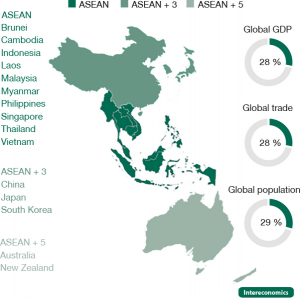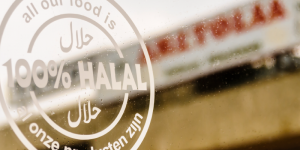Halal market opportunities at risk unless New Zealand invests more in promotion
New Zealand market opportunities in South Asia will be squandered unless New Zealand invests in promoting and advocating its Islamic Halal certification, according to the founder of Halal certification in New Zealand.
Dr Mohamed Abdel-Al has just returned to New Zealand from the Global Halal Congress in Pakistan last month, concerned that the use of pre stun slaughter in New Zealand’s meat export works is misunderstood overseas. He says there is currently no effort from New Zealand to correct what he called ‘these false impressions.’
“Officially, nearly all Muslim countries accept Halal meat from New Zealand in the knowledge that it is stunned before slaughter”, Dr Abdel-Al says.
“But there are some influential Muslims in various countries who apparently believe that the electric stun injures or kills the animal and so makes the resulting meat from New Zealand unacceptable for Muslims. There are articles published in Muslim countries claiming New Zealand meat as is not Halal.”
Dr Abdel-Al says when he was co-chairing a session at the Congress in Karachi on Halal food, he showed a video taken inside a New Zealand meat processing plant.
“It showed sheep recovering from the stun. Some international delegates seemed to have little idea that the stun was reversible. They were surprised to see that if the sheep was not slaughtered, then it would soon get to its feet again as though nothing had happened.”
For Halal slaughter an animal has to be healthy and uninjured at the point of slaughter, or it is considered as not Halal and so is forbidden for consumption by Muslims under Shariah law.
Dr Abdel-Al says New Zealand has been recognized in the Muslim world as a leader in Halal meat production for the past thirty years. But he says the New Zealand export food industry and government need to support the existing Halal certifying bodies in New Zealand. He says without this cooperation to invest in long term promotion and advocacy New Zealand exports, including Halal certified dairy exports, will lose ground. He says this is likely in both potential markets in South Asia and the traditional markets for New Zealand in the Persian Gulf and South East Asia.
“It’s frustrating that the New Zealand government thinks Halal certification is only about regulating existing practices in established meat markets. As beneficial as this might be, at the same time there is no effort going into countering the bad press New Zealand is getting through the whole Muslim world, which puts at risk the acceptance to a range of New Zealand Halal products, including dairy products,” Dr Abdel-Al says.
Dr Abdel-Al pointed to the Prime Minister John Key’s statement in November 2009 of how significant Halal markets are becoming for New Zealand, but he says it’s not matched by actions.
“John Key said at the time that Halal markets were worth $2 trillion a year, yet Trade and Industry tell us that they do not even have a single official with specific Halal responsibilities.”


